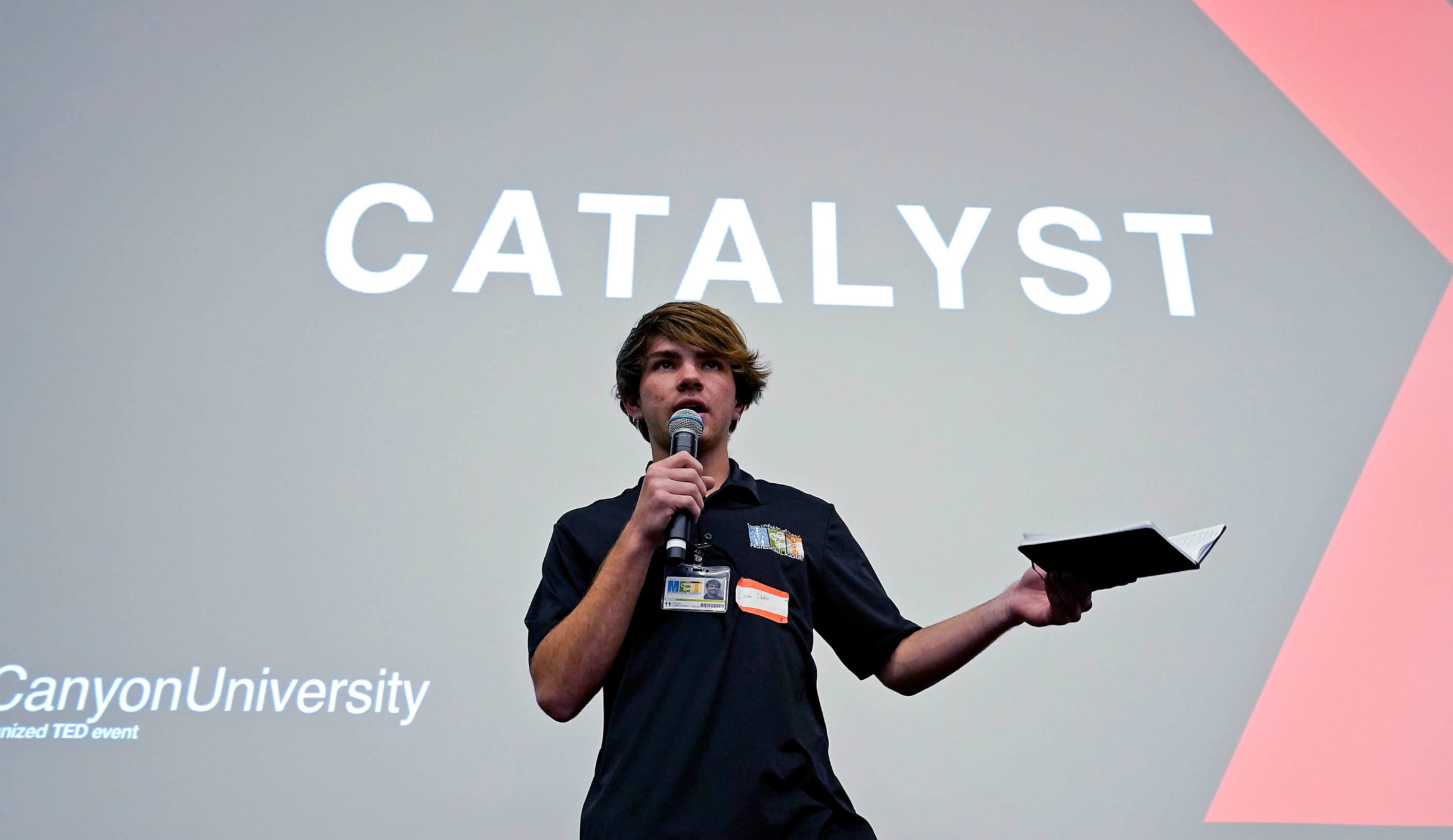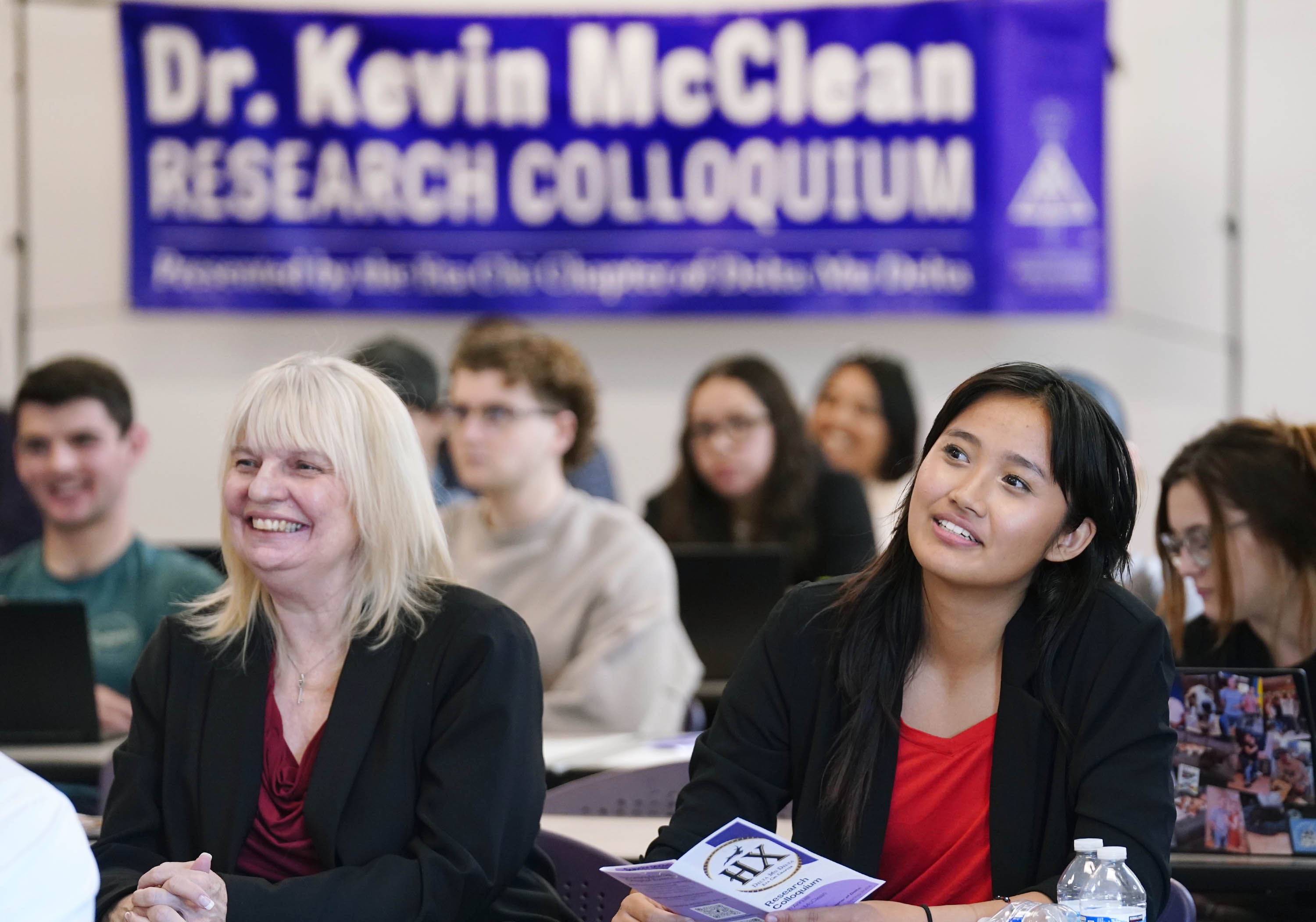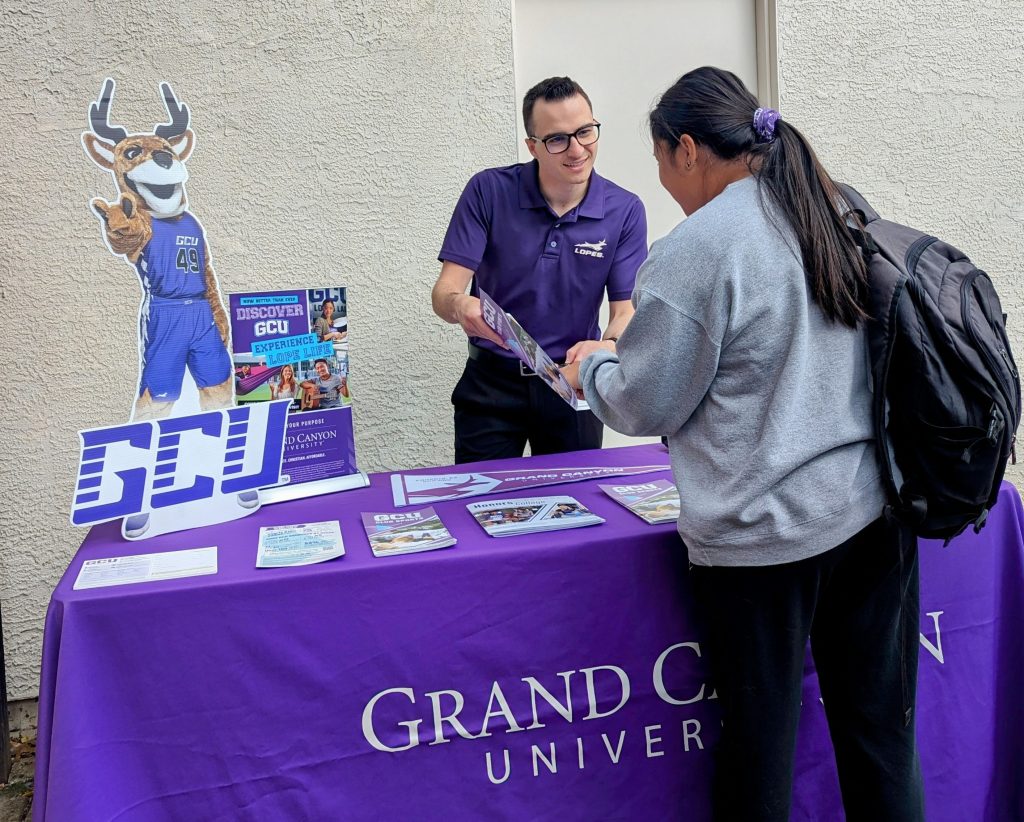
Mitchell Borges budgeted enough money for two years of college once he graduated from high school.
But he stretched those dollars beyond those two years, expanding his education at Grand Canyon University far beyond where he thought he would go in his academic journey.
With the help of former admissions counselor Nick Chandler, Borges earned his doctorate at 26 and himself worked as an admissions counselor in Northern California until the spring, assisting prospective GCU students.
Now the director of marketing for the Associated Students of the University of California, Davis, he is one several students who have either earned or are in the process of earning their doctorates at GCU while still in their 20s.
According to the World Population Review, about 2% of the U.S. population holds a Ph.D., and the National Science Foundation's Survey of Earned Doctorates reported in 2020 that the median age of doctorate recipients was 35 years old.
“For me personally, taking a break would be very hard for me to come back to pursue a degree,” said Laynie T. Callo, 24, who is pursuing her doctorate in performance psychology while preparing for her July 27 wedding. “So I wanted to push through in my youth. A lot of people like to take the opportunity to take breaks, but it’s not for me.”
Business administration doctoral candidate Samantha Estenson, 23, said she didn't plan on pursing a doctoral degree originally.
“It has exceeded my expectations,” said Estenson, who grew up in Tempe but did not know about the university until a high school friend who was studying nursing at GCU told her how much she liked the school and its programs.
Estenson, a game assistant with the Phoenix Suns, wants to graduate before her projected date of May 2025.
“I’m competitive with myself,” she said. Her goal is to work in player financial operations for an NBA team, preferably the Suns.
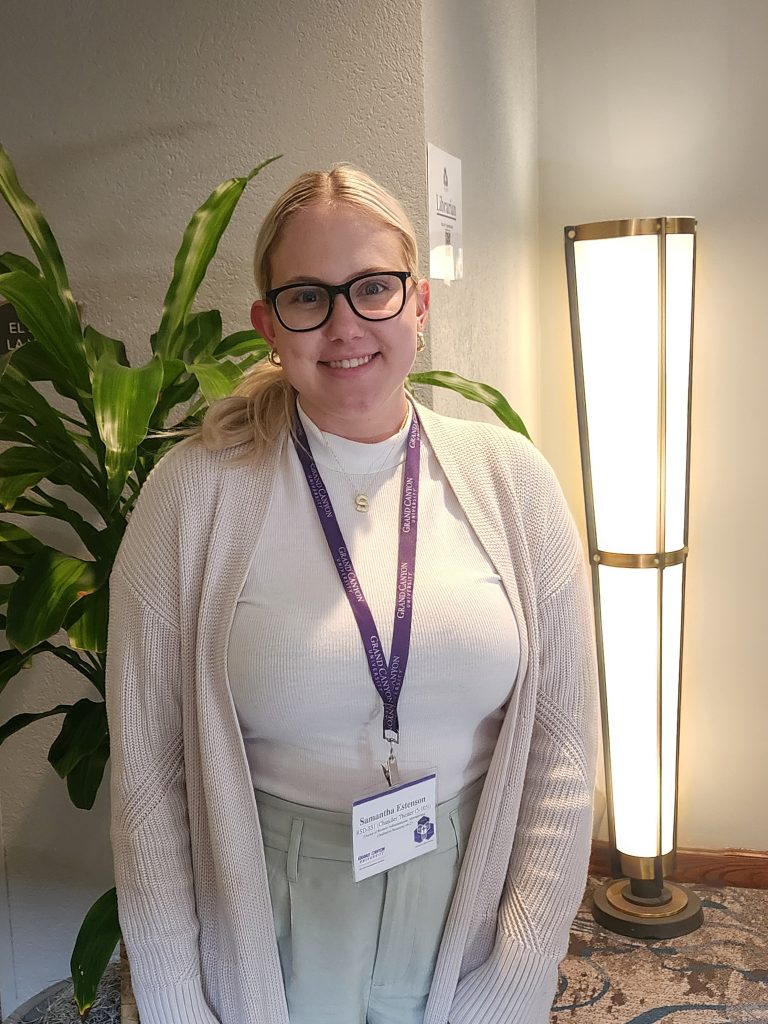
Dr. Nicholas Markette, assistant dean and program chair for GCU’s College of Doctoral Studies, said of any doctoral learner, "It's encouraging and exciting to watch these young leaders emerge as experts and change leaders."
Cierra McKenzie's father told her she had her entire life to work, which motivated the 24-year-old to pursue her doctorate after earning two master’s degrees at Florida A&M and Edward Waters.
“I want my grandmother to see me walk across the stage,” said McKenzie, whose dissertation is “The Effects of the Experiences on Foster Care Adolescents’ Future Decision Making.”
“That’s my biggest dream, my biggest goal. It’s going to happen. It always was the plan. It’s not a marathon, so I didn’t care when I was going to get it done. But I started thinking about those goals and thought, ‘OK, I want to be a doctor by 26, so let’s make it happen.’ And that’s what I intend to do.”
Lucy McPherson earned her bachelor’s degree at 20, finished her second master’s degree in eight months and raises a 3-year-old daughter with her husband, Conner.
But McPherson, now 28, is eager to earn her doctorate before she turns 30.
“I’ve always been the type of person who always has pursued things at 100 miles an hour,” McPherson said from her home in Paradise, Texas, about 45 minutes north of Fort Worth.
“I always enjoyed feeling like I had the game compared to some of my peers. So to have the opportunity, especially at GCU, to have a program where you can succeed quickly with the right guidance they offered so easily, it’s opened up some great opportunities for me.”
McPherson, who teaches English at Springtown High School, wants to become a practicing psychologist so she can earn enough money so Conner can be a stay-at-home dad.
“Time management is the key. If you can manage your time and learn the work-life balance, then it becomes a lot easier,” McPherson said.
“The curriculum at GCU is extremely rigorous. It’s the biggest challenge I’ve ever taken on, other than being a mom.”
Despite the tough curriculum, McPherson's first residency went as smooth as possible, she said.
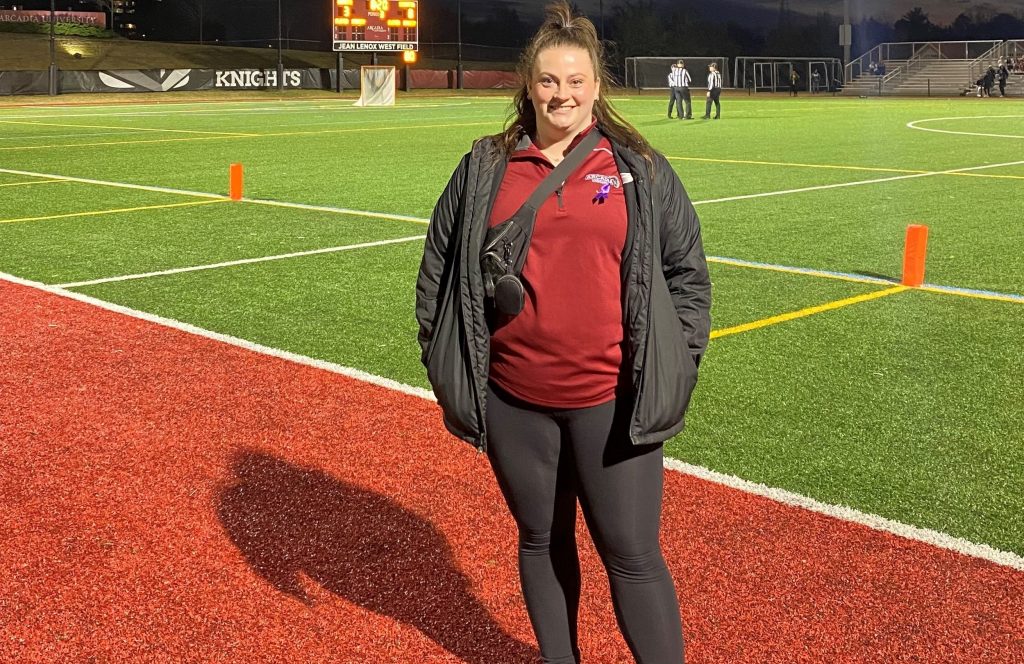
“It made me wish I lived in Arizona after attending in-person classes,” she said. “It was the most magical time. I like comparing it to taking a toddler to Disney World.”
Because Estenson turned 17 a month before she moved into a dormitory at the University of North Dakota as a freshman, she did not feel overwhelmed by the age gap between her and her fellow doctoral candidates during her residency.
Borges earned his bachelor’s, master’s and doctoral degrees from GCU. He said his accelerated path limited some of his time to get connected on campus.
But there was one major upside.
“As I would have loved to stick around, I was able to get through and be able to get out without any debt through my undergrad (work), and I was still able to stay involved,” Borges said. “And the counselor role was kind of a good middle ground for me.”
Borges said he carried over 12 academic units from Central Valley Christian High School in Visalia, California, as an incoming GCU freshman. He took 16 units each semester, concentrating on core courses on campus and enrolling in general education classes during the summer.
After graduating in the summer after his second year at GCU, Borges immediately embarked on his master’s degree. As his final days approached, he said he was approached by a doctoral counselor who told him, “Hey, why don’t you take a class? Do one class and see what happens. At least you could say you’ve tried it.”
To Borges’ surprise, he pushed through the doctoral program.
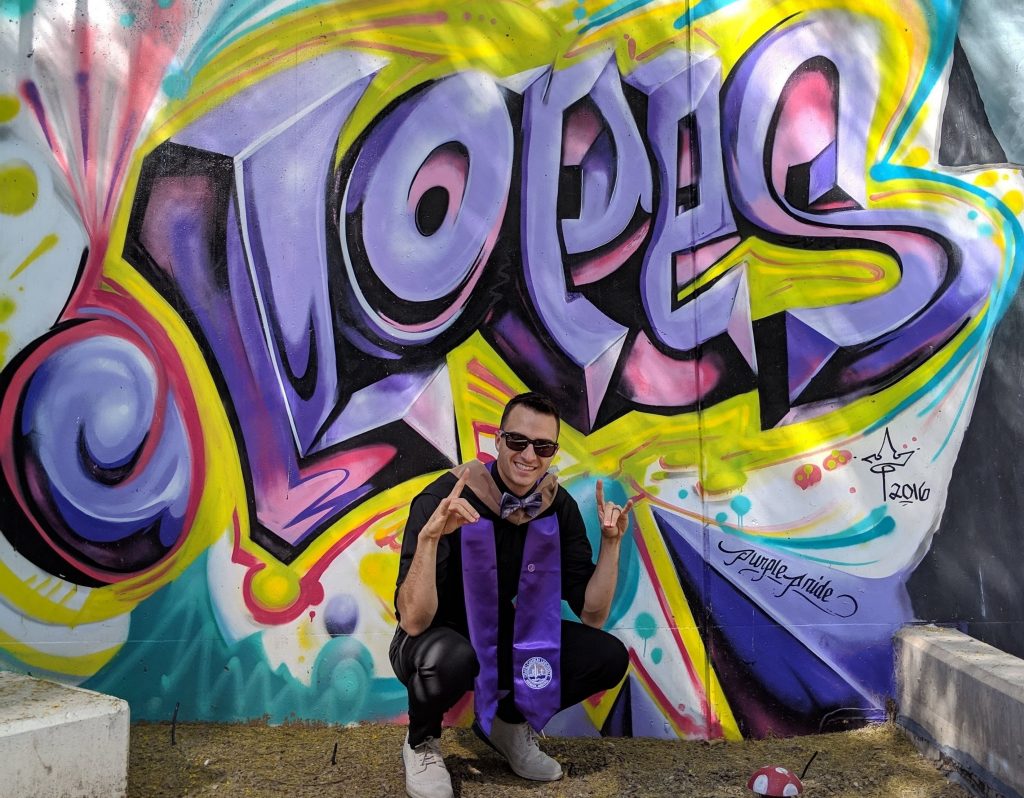
Fatou Boye was determined to earn a doctorate and set a high standard for her family when she came to the United States from Senegal during middle school.
She attended International Community High School in the Bronx, which reminded her of GCU from a cultural standpoint.
After teaching briefly in Cincinnati and Dallas, Boye, 26, knew it was time to pursue her doctorate before returning to her home country and opening a boarding school.
“You do distance yourself from society,” Boye said of the commitments to studying. “With the type of life I have now, it’s like you’re so focused on work, not attending birthdays or parties.
“But actually, I enjoy that because I feel like scholars or what I’m learning is my best friend at the moment, which leads one of my biggest fears. You end up losing your student identity once you graduate. It’s one of the reasons why I picked myself back up after (earning) my masters.”
Borges believes earning his doctorate at an early age was ideal for his duties as an admissions counselor.
“I think I ended up being a bridge between the students and the parents quite a bit,” Borges said. “I connect with the parents because I'm older and I've been through this position.
“But I'm young enough to still kind of bridge that gap and kind of almost mediate right between students and parents to sort of translate, ‘OK, this is what the student's looking for and why that's important.’ And (I relay to students), ‘This is what your parents are saying, and this is what they're trying to get at.’"
McPherson found one perk that was essential to her life while attending her first residency in Chandler in May.
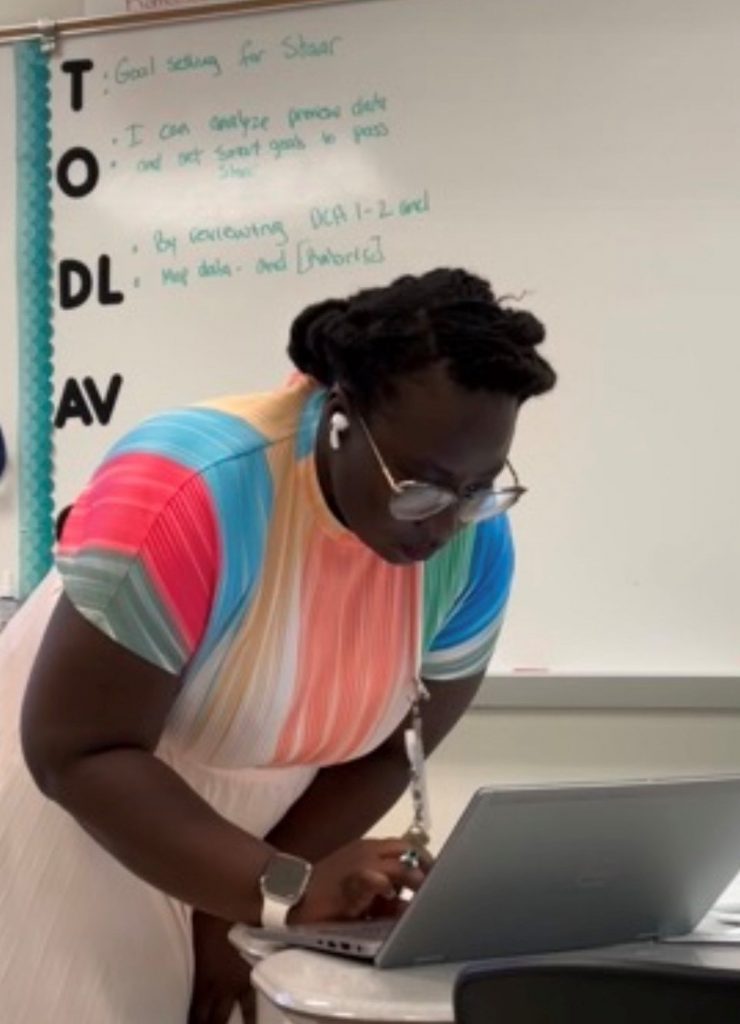
“(GCU) offers a Bible study in the mornings,” she said. “Attending those (gatherings) before classes really opens your mind to different ideas and how you can be successful in this program because it is very vigorous. There’s a lot of hard work and a lot of late nights.”
McKenzie said the Bible study supported her faith and filled a void in the three-hour time difference with her family in Florida, especially when she did not get out of residency classes until 6 p.m.
“So talking to God, that’s the only person you have,” McKenzie said. “The one Bible study and being connected to all those people and then talking to God to get through the whole week, that’s what got me through.”
The dissertation process can be a humbling experience for doctoral candidates, especially those who have not been subjected to blunt criticism of their work while earning a bachelor’s or master’s degree.
McPherson, however, relished some wisdom shared by Dr. Kristy Hirschberg, doctoral chair in GCU's College of Doctoral Studies, particularly after residency and when subjected to scrutiny over dissertation drafts.
“It’s given me a completely different perspective on life,” McPherson said. “(Hirschberg) told us, ‘When you’re taking criticism, you have to synthesize all of the information you’re getting, and then create new knowledge with that. That’s how you become successful in the doctoral program.’
“It’s been a moving experience, absolutely transforming. I’d recommend this doctoral program to anyone who is looking to further their academics.”
GCU News Senior Writer Mark Gonzales can be reached at [email protected]
***
Related content:
GCU News: Doctoral candidate, pilot navigates past obstacles for Harvard program





































